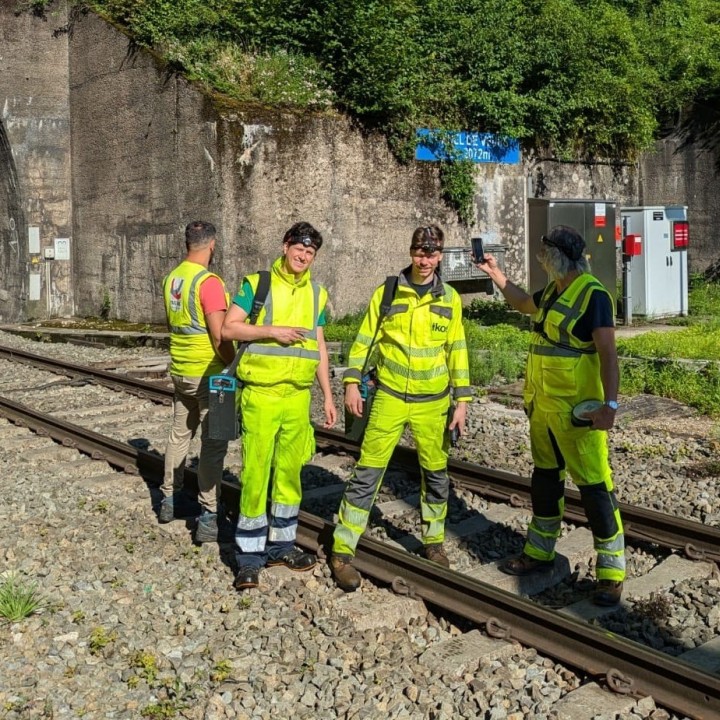
Sustainability within Process & Energy Industries: Panel Talk with Route 2030
In the last few years, the impact of climate change has already taken a worldwide toll. To counteract the negative effects of climate change and prevent natural disasters or crises, implementing sustainable practices throughout the value chain is becoming increasingly urgent.
In a recent panel talk hosted by Catalay in cooperation with Route 2030 on sustainability in engineering practices, experts discussed the importance of sustainability and underlined the actions that we can collectively take to protect future generations.

Below are a few key insights discussed during the panel:
PURPOSE OF SUSTAINABILITY
According to the experts, one thing is becoming increasingly clearer. The purpose behind sustainability is now widely understood and accepted. The urgent need to address environmental and social challenges is a clear driving force behind sustainability initiatives.
CONSUMER AND INVESTOR INFLUENCE
Not only are sustainability practices getting more attention, it seems that the demand for them has also grown. Consumer demand and investor pressure are seen as powerful drivers for sustainability. The experts highlight that businesses are progressively responding to the growing consumer preference for sustainable products and the demand for ethical and responsible investment options.
EDUCATION AND RAISING AWARENESS
While consumers are showing more interest in sustainable practices, experts still underline that raising awareness about the consequences of climate change and unsustainable habits is crucial in fostering change.
REGULATIONS AND POLICY
Along with the need for educational initiatives, the importance of strong government policies and regulations to incentivize sustainable practices is also particularly stressed. These policies can help level the playing field and create market conditions that favour sustainability. However, some policies might slow down sustainable innovations.
CHALLENGES AND RESISTANCE TO CHANGE
Some industries can typically be more reluctant than others in driving sustainable practices because they fear disruption of their existing business models. Experts highlight the entrenched systems and practices that make it challenging for traditional industries to change their course quickly.
THE IMPORTANCE OF CROSS-SECTOR COLLABORATION
Yet, making the effort of collaborating and encouraging partnerships between governments, businesses and NGOs can set the tone and make a difference. Cross-sector initiatives have the power to leverage collective expertise and resources. Often, it makes sense to build on learnings and best practices of other sectors and industries in tackling one’s own sustainability challenges. The answer might be just around the corner.
INNOVATION AN TECHNOLOLGY
New technologies are gaining increased traction and can also be the answer to more efficient sustainable practices. Experts emphasize that innovative solutions, including clean energy technologies, circular economy approaches, and sustainable materials, hold great promise in facilitating the transition to a more sustainable future.
LONG-TERM VISION
Finally, the need to adopt a long-term perspective was emphasized. Sustainable practices may require upfront investments, but they can yield significant benefits in the form of reduced environmental impacts, enhanced resilience, and improved reputation over time.
Thank you to the industry experts for sharing their enriching insights on sustainable engineering practices and enlightening participants on this topical issue.
Panel members
Vincent Van Hunskerken – Procurement & Supply Chain Manager at NSE – Focusing on the implementation of the Sustainability Strategy at Nippon Shokubai Europe.
Anouk Van Looveren – Country Manager / Marketing Director – Country Manager for Dow in Belgium – Marketing director for Dow Coating Materials business.
Niels Vankrunkelsven – Energy Transition Expert – Passionate for the industrial energy transition: Niels is the initiator of a new energy transition consultancy business unit.
François Depierreux – Director at Engie Impact – Advising Companies and Governments in their Energy Transition – Renewables – Sustainability
Gert Linthout – Chief Explorer – Entrepreneur engaged in cleantech company CEE and Ray & Jules, world’s first coffee roaster using solar energy only
Overview


